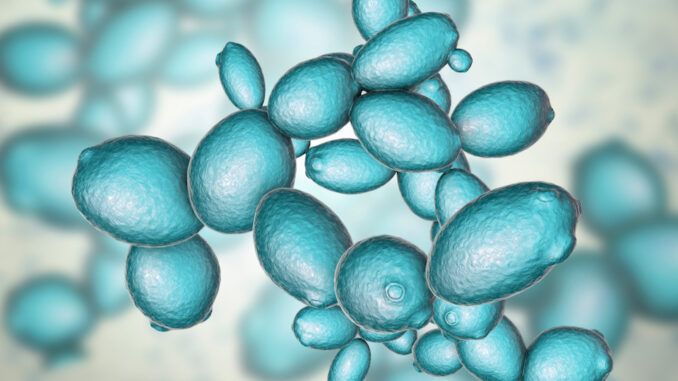
Encouraging results are obtained from research carried out to develop novel treatments for inflammatory bowel disease, an intractable hypersensitive immune disease of the intestine, and multiple sclerosis, an autoimmune disease of the brain and spinal cord.
The research team at ImmunoBiome, a microbiome-based treatment-oriented research and development company, and the Life Sciences Department of Pohang University of Science and Technology (POSTECH) announced on the 15th of June that MGCP (Mannan/β-Glucan containing polysaccharides), a polysaccharide mixture that the researchers extracted from yeast, is effective against the onset of hypersensitive autoimmune diseases.
MGCP is a microbiome-based therapeutic candidate identified by ImmunoBiome. Unlike other microorganism-derived metabolites currently used to develop microbiome therapeutics, MGCP with its unique chemical formulation and polysaccharide backbone, can selectively control multiple inflammatory diseases through precisely tractable cellular and molecular pathways. Due to its natural microbiome-derived origin, it is expected to have negligible side effects. Importantly, treatment development technology based on MGCP-like active materials is the spotlight of next-generation microbiome-based treatment regime.
In this study, the ImmunoBiome and POSTECH research team focused on anti-inflammatory substances derived from yeast. Yeasts are symbiotic microorganisms comprising ~1-2% of the microbial biomass of the human body that have enormous effect on the development and regulation of the immune system. Through cutting edge purification techniques, the research group isolated MGCP, a polysaccharide mixture with unique structure, and evaluated its immunomodulatory efficacy in in vitro culture assays as well as in vivo in mice. It was observed that MGCP potently suppressed inflammatory immune responses.
MGCP administration was shown to exert its beneficial effect by two-pronged effects on the immune system. On one hand, MGCP treatment inhibits the generation of inflammation promoting type 1 helper T cells (called ‘Th1 cells’). More importantly on the other hand, MGCP treatment was shown to facilitate the generation of the so-called Regulatory T-cells (‘Treg cells’ in brief), a key subtype of T cells that are critical for keeping overactive immune reactions in check. As a result, MGCP administration efficiently suppressed the overall progression of the diseases.
Dr. Dipayan Rudra, a former member of the Institute of Basic Science and an invited Affiliate Professor at POSTECH who is currently a member of ImmunoBiome, significantly contributed to completing this study with the research group of Dr. Sin-Hyeog Im, Professor at POSTECH and the founding member of ImmunoBiome. The researchers identified the major component of MGCP responsible for mediating both its therapeutic effects to be a specific form of β-1,6-glucan polysaccharide, where glucose molecules are joined like strings through β-1,6 glycosidic linkages. They also demonstrated that MGCP dependent repression of pro-inflammatory function of Th1 and induction of anti-inflammatory response through Treg cells are mediated by TLR2 and Dectin1 respectively, which are two innate immune receptors expressed by dendritic cells.
Several studies prior to this report that investigated the immunological properties of commensal yeast species have reported that yeast cell surface polysaccharides are mostly pro-inflammatory (immunostimulatory), and only under certain unexplainable conditions could display immunoregulatory properties. In that sense, results from this study holds seminal importance, since the researchers elegantly provide an answer to this apparent anomaly. They show that the yeast cell wall is in fact composed of two broad types of β-glucan polysaccharides. MGCP, composed of β-1,6-glucan is a relatively minor component. The major component consists of β-1,3 glycosidic linkage containing β-1,3-glucan, which unlike MGCP, can trigger proinflammatory responses to the immune system, and only upon its removal by enzymatic treatments or purification techniques, the beneficial effects of β-1,6-glucan is unleashed.
ImmunoBiome CEO and Professor of Life Sciences at POSTECH, Dr. Sin-Hyeog Im said,
“The results of this study will be of great help in developing next-generation therapeutics that can overcome the limitations of existing inflammatory immune disorder drugs, which have had major side effects. We will continue further studies to test if it works effectively in other immune-related diseases.”
Results from this research was published in Nature Communications, a well acclaimed international academic journal, at 10:00 London time (BST) / 05:00 US Eastern time on the 14th of June. (Article title: Structural specificities of cell surface β-glucan polysaccharides determine commensal yeast mediated immuno-modulatory activities).

